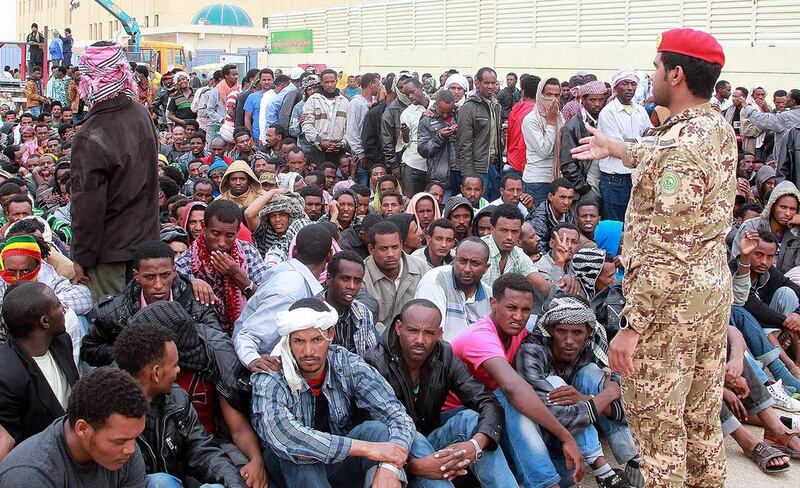On a quick tour around Jeddah after the end of Saudi Arabia’s amnesty period for foreign workers to legalise their status or leave the country, it is clear that the pace of construction has slowed and the number of closed shops and businesses has risen.
Almost gone from view are the day labourers who service the construction trades and have been a significant segment of available labour for the sector. As a result, even amid the usual traffic congesting the city’s roads, any passer-by will notice that construction momentum is slowing down and that the number of workers visible on sites is much lower than before the November 3 deadline.
On November 4, thousands of illegals, including those who overstayed their visas, such as pilgrims who had sought jobs and migrants working under one sponsor trying to get jobs elsewhere, were rounded up across Saudi Arabia.
Rather than risk prosecution, nearly a million workers – Bangladeshis, Filipinos, Indians, Nepalis, Pakistanis and Yemenis among them – had already taken advantage of the amnesty to leave the kingdom.
About four million were able to establish legal residency before the grace period ended, media reported.
Saudi Arabia has a population of about 28 million and a jobless rate of more than 12.5 per cent.
Only legal workers go to the construction sites during the day now, and illegal ones are hiding in their homes, or working during the evening shifts, away from the eyes of the Saudi Labour Office and the police, according to an onsite worker near a bridge under construction.
One Egyptian plumber, who stopped going to building sites and instead is using his private car as a taxi, said: “I couldn’t correct my labour status due to the fact that my sponsor has problems with the Labour Office and he can’t get their services. Let’s wait and see. The [building] movement is stopping gradually. Before, I used to work for small development owners. I used to make up to 6,500-8,000 riyals [Dh6,365-7,834].”
Private property developments have felt the impact of the measures and media reports have estimated that 40 per cent of small and medium contracting companies have stopped work completely.
Fahad Al Bogami, a member of the Jeddah Chamber of Commerce & Industry’s specialised committee, says that “contracting companies depend heavily on daily-paid labourers, whether they have residence permits or are overstayers, due to the seasonality of the sub-contractors’ jobs in general”.
These companies have been unable to correct the status of tens of thousands of illegal workers given the costs associated with obtaining residency including medical cover, social security and government fees, he says.
“The minimum percentage of Saudisation for the construction and building sector is 7.5 per cent, as per the labour ministry regulations. The sector is labour-intensive, and companies cannot find Saudis to hire onsite, and they are not trained enough, in addition to construction jobs are not preferred by citizens,” says Mr Al Bogami.
One solution that has been discussed is the idea of establishing a 100 million riyals company, licensed by the ministry of labour, which will sponsor construction workers and then hire them out to contractors on a seasonal or longer-term basis, says Mr Al Bogami.
The idea has not been translated into action so far. It is expected to be enacted soon, however, according to an industry source.
Work on infrastructure projects initiated by the Saudi government has not stopped. The kingdom still needs the sector to meet its urgent needs, especially with multibillion projects in the pipeline such as the 27bn riyals King Abdul Aziz airport development in Jeddah and Riyadh’s 82bn riyals metro project.
business@thenational.ae





